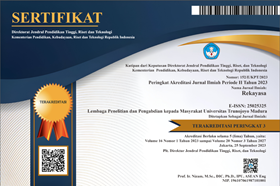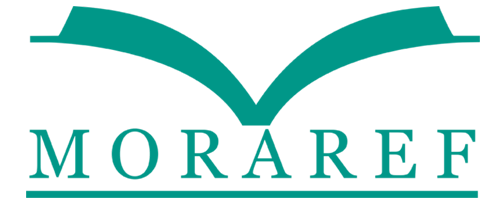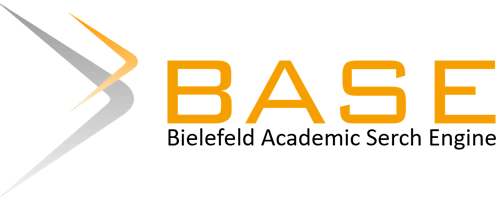Studi Life Cycle Assessment Produksi Gula Tebu: Studi Kasus di Jawa Timur
Abstract
Tujuan dari makalah ini adalah untuk mengidentifikasi potensi dampak lingkungan selama proses produksi gula tebu di Jawa Timur Indonesia. Studi ini menggunakan pendekatan Life Cycle Assesment (LCA) untuk mengevaluasi dampak lingkungan selama proses produksi gula dari tebu. Analisis LCA fokus pada pengolahan tebu menjadi gula, yang terdiri dari proses persiapan, proses miling, centrifugal separation, proses clarification, proses evaporation, dan proses crystalization. Hasil Life Cycle Impact Assessment (LCIA) diekpresikan dengan metode EDIB 2003, menunjukkan bahwa dampak lingkungan yang paling signifikan terhadap penurunan kualitas lingkungan adalah global warming, acidification, eutrofikasi, human toxicity air, dan ozone depletion. Selanjutnya, proses produksi gula yang paling besar kontribusnya pada dampak lingkungan adalah proses penggilingan/miling, diikuti oleh proses centrifugal seperation,proses clarification, proses crystallization,proses evaporation, dan proses preperation untuk semua kategori dampak lingkungan.
Life Cycle Assessment Study of Sugarcane: The case of East Java
ABSTRACT
The purpose of this paper is to identify potential environmental impacts during the process of sugarcane production in East Java, Indonesia. This study utilized Life Cycle Assessment (LCA) approach to evaluate the environmental impact during the manufacturing of sugar cane. LCA analysis focuses on processing sugarcane, which consists of the preparation process, the milling process, centrifugal separation, the clarification process, the evaporation process, and the crystalization process. The Life Cycle Impact Assessment (LCIA) was expressed by the EDIB 2003 method. The result showed that the most significant environmental impacts on environmental degradation were global warming, acidification, eutrophication, human toxicity of water, and ozone depletion. Furthermore, the production process with the greatest contribution to environmental impact were the miling process, followed by centrifugal seperation process, clarification process, crystallization process, evaporation process, and preperation process for all categories of environmental impacts.
Keywords: Environmental Impact, Energy, Sugarcane, Global Warming, Life Cycle Assessment
Keywords
Full Text:
PDF (Bahasa Indonesia)References
Anne Renouf, M., Pagan, R. J., & Wegener, M. K. (2011). Life cycle assessment of Australian sugarcane products with a focus on cane processing. International Journal of Life Cycle Assessment. https://doi.org/10.1007/s11367-010-0233-y
Cardona, C. A., Quintero, J. A., & Paz, I. C. (2010). Production of bioethanol from sugarcane bagasse: Status and perspectives. Bioresource Technology. https://doi.org/10.1016/j.biortech.2009.10.097
Chauhan, M. K., Varun, Chaudhary, S., Kumar, S., & Samar. (2011). Life cycle assessment of sugar industry: A review. In Renewable and Sustainable Energy Reviews. https://doi.org/10.1016/j.rser.2011.04.033
Curran, M. A. (2018). Life-cycle assessment. In Encyclopedia of Ecology. https://doi.org/10.1016/B978-0-12-409548-9.09700-1
Goldemberg, J., Coelho, S. T., & Guardabassi, P. (2008). The sustainability of ethanol production from sugarcane. Energy Policy. https://doi.org/10.1016/j.enpol.2008.02.028
Hauschild, M. Z., Rosenbaum, R. K., & Olsen, S. I. (2017). Life Cycle Assessment: Theory and Practice. In Life Cycle Assessment: Theory and Practice. https://doi.org/10.1007/978-3-319-56475-3
Hofsetz, K., & Silva, M. A. (2012). Brazilian sugarcane bagasse: Energy and non-energy consumption. Biomass and Bioenergy. https://doi.org/10.1016/j.biombioe.2012.06.038
ISO. (2006). 14040: Environmental management–life cycle assessment—Principles and framework. International Organization for Standardization.
Kementerian Perindustrian Republik Indonesia. (2018). Sektor-Sektor Manufaktur Andalan Tahun 2018. Kementerian Perindustrian Republik Indonesia.
Luo, L., van der Voet, E., & Huppes, G. (2009). Life cycle assessment and life cycle costing of bioethanol from sugarcane in Brazil. In Renewable and Sustainable Energy Reviews. https://doi.org/10.1016/j.rser.2008.09.024
Murugan, A. M., & Ranjit Singh, A. J. A. (2012). Sugarcane. In Valorization of Food Processing By-Products. https://doi.org/10.1201/b12816
Ramjeawon, T. (2008). Life cycle assessment of electricity generation from bagasse in Mauritius. Journal of Cleaner Production. https://doi.org/10.1016/j.jclepro.2007.11.001
Renó, M. L. G., Lora, E. E. S., Palacio, J. C. E., Venturini, O. J.,
Buchgeister, J., & Almazan, O. (2011). A LCA (life cycle assessment) of the methanol production from sugarcane bagasse. Energy. https://doi.org/10.1016/j.energy.2010.12.010
Renouf, M. A., Wegener, M. K., & Pagan, R. J. (2010). Life cycle assessment of Australian sugarcane production with a focus on sugarcane growing. International Journal of Life Cycle Assessment. https://doi.org/10.1007/s11367-010-0226-x
Silalertruksa, T., Pongpat, P., & Gheewala, S. H. (2017). Life cycle assessment for enhancing environmental sustainability of sugarcane biorefinery in Thailand. Journal of Cleaner Production. https://doi.org/10.1016/j.jclepro.2016.06.010
Sirait, M. (2018). Cleaner production options for reducing industrial waste: The case of batik industry in Malang, East Java-Indonesia. IOP Conference Series: Earth and Environmental Science, 106(1). https://doi.org/10.1088/1755-1315/106/1/012069
DOI
https://doi.org/10.21107/rekayasa.v13i2.5915Metrics
Refbacks
- There are currently no refbacks.
Copyright (c) 2020 Marudut Sirait

This work is licensed under a Creative Commons Attribution-ShareAlike 4.0 International License.
























